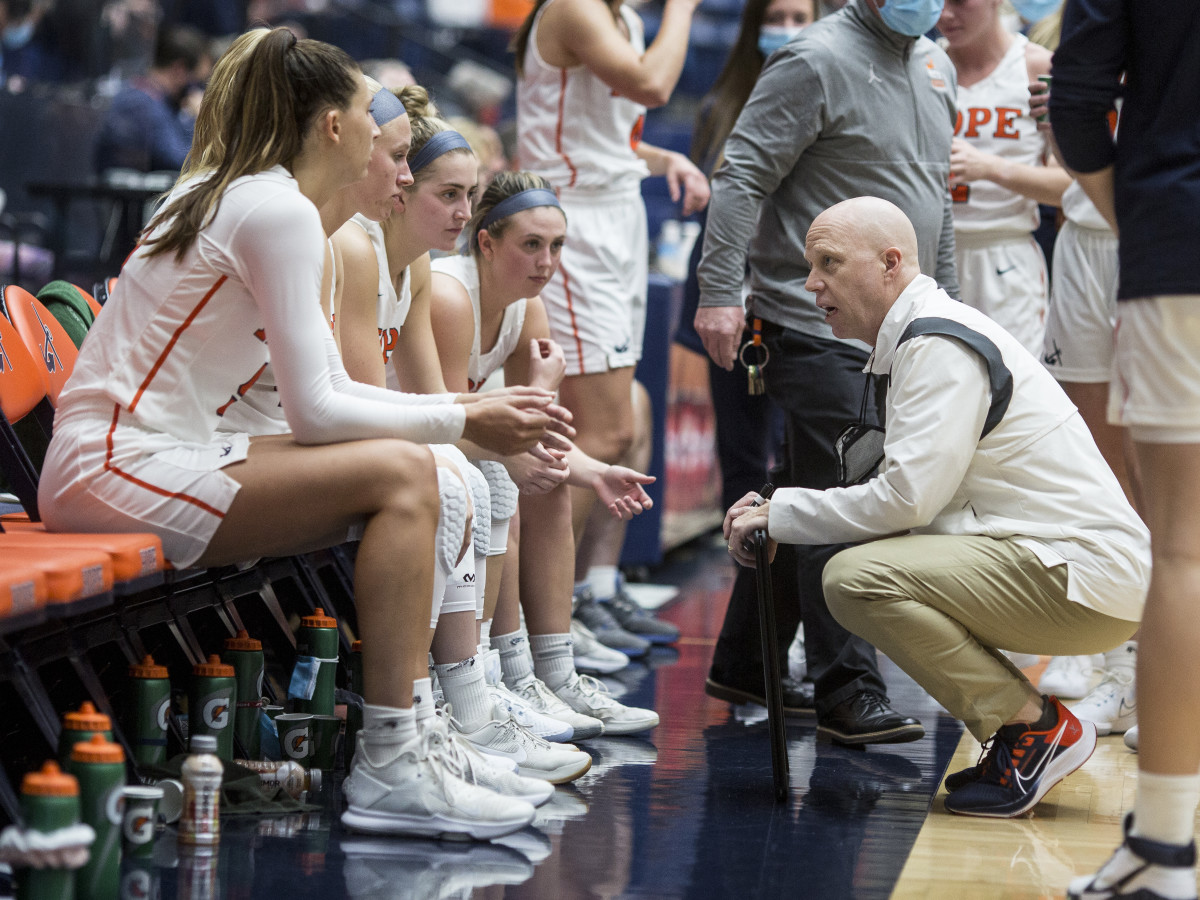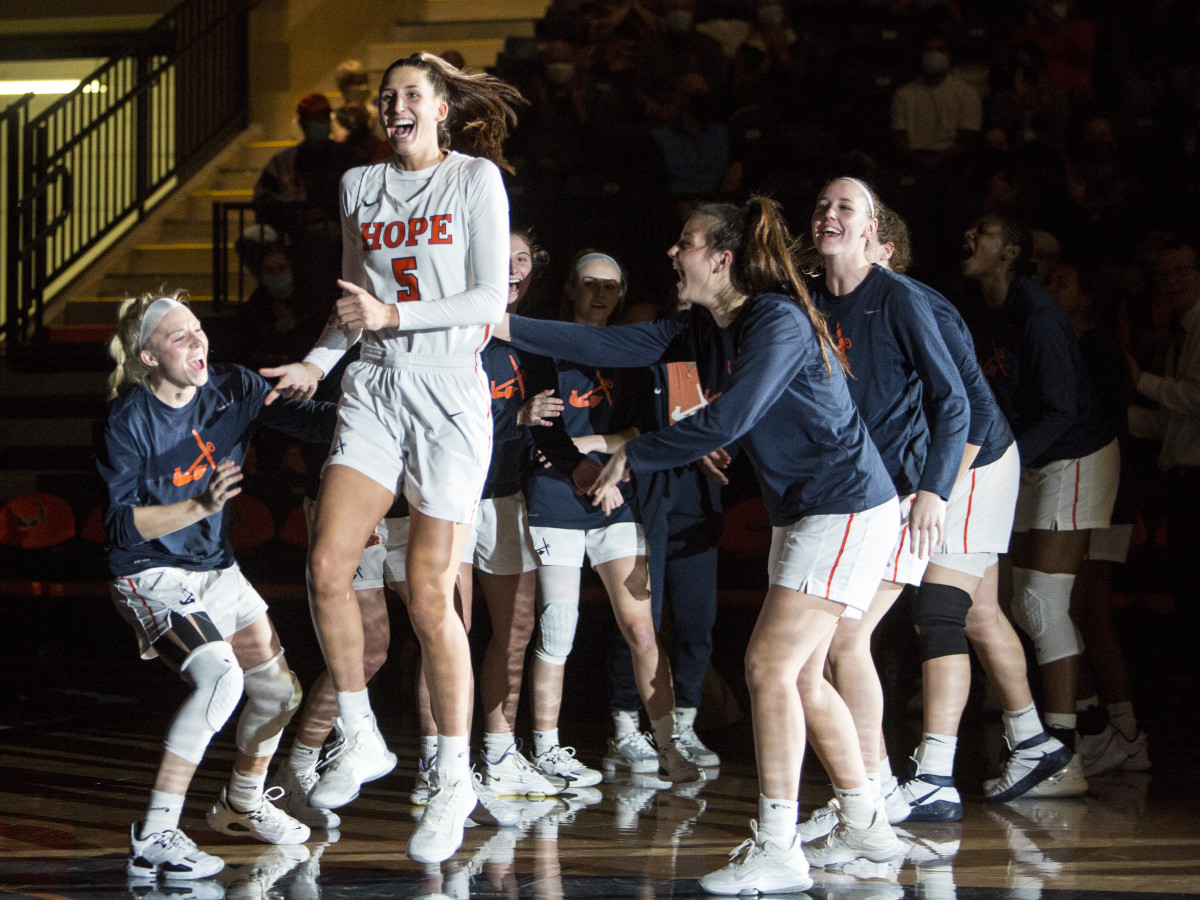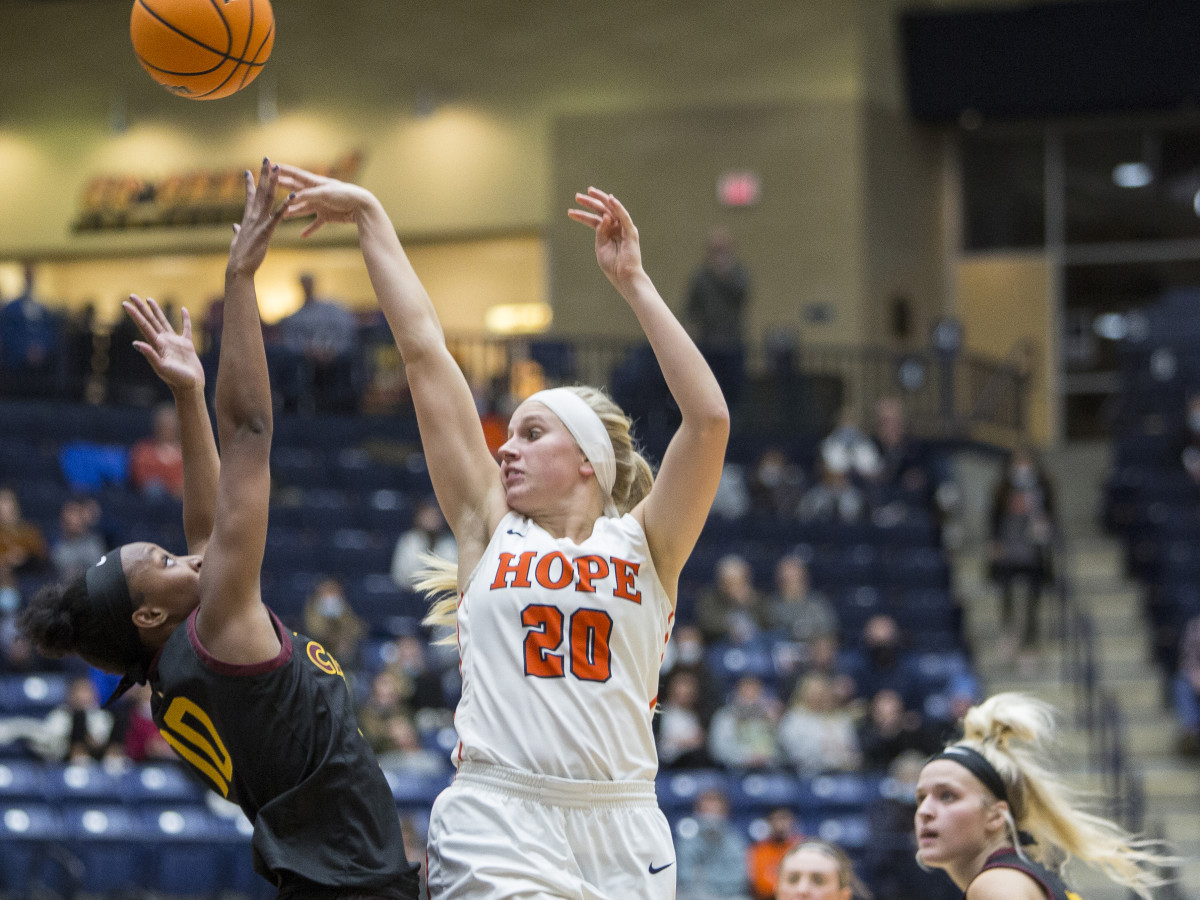NCAA Basketball’s Longest Active Winning Streak? Meet Hope College

Who currently owns the longest active win streak in women’s college basketball? It’s not the No. 1 ranked South Carolina Gamecocks. Nor is it traditional powerhouses such as Baylor, Stanford or UConn.
You may not have heard of this school unless you live near the area or you know of its famous rivalry with Calvin University. Hope College, a small Christian institution located just a few miles from the coast of Lake Michigan, hasn’t lost a game in nearly three years—57 consecutive victories, many of them without breaking too much sweat. It’s the longest active winning streak at any level of NCAA basketball, men’s or women’s.

This level of consistent success seemed unfathomable just a few years ago given that the program was in a bit of a slump.
After a national championship in 2006, the postseason disappointments were adding up for the program. While its stranglehold on the Michigan Intercollegiate Athletic Association (MIAA) hadn’t changed for more than two decades, the Flying Dutch would seemingly hit a wall when it came time for March Madness—defeats in the Sweet 16 or even early rounds of the tournament for most of the 2010s were common.
Fast-forward to the 2019 Division III NCAA tournament. The Flying Dutch were smoked by Wartburg in the second round, 79–49. Embarrassing for a program of this caliber? Yes. But maybe the wake-up call this team needed, according to coach Brian Morehouse.
“That was one of the biggest margins of victory I’ve lost in my career, which has lasted over 20 years from now,” Morehouse admits. “It was difficult. The fact that it was a very visible loss in the national tournament, [even though] it was against a really good team, it just wasn’t what our program was about.”
And yes, there isn't much shame in losing in the NCAA tournament considering that Hope has compiled one of the most impressive résumés in college basketball. Since 2006, the Flying Dutch have made it to the Big Dance all but once (2012). In that span, they’ve made it to the Final Four twice, last appearing in 2010, and even took home their second-ever national championship in ‘06.
While there is undoubtedly a culture of winning in Holland, Mich., maybe there was also a little bit of stagnation that came with it.
“On the way home from the [Wartburg] game, we had to have some tough conversations as coaches,” Morehouse says. “I don't think that our program was broken, but I do think we became more intentional about maybe some things we had let slip because we had been winning a lot.”
According to Morehouse, this shift in culture has been a player-led movement with guidance from the coaching staff. While Morehouse and the coaching staff pushed for improving relationships between players and better practice habits, the players themselves took extra initiative in the offseason—hosting open gyms in the summer, helping the incoming freshman become acclimated, and, most importantly, team-bonding activities that brought the group closer.
Hope College is a private Christian college, so faith is front and center in many of the players’ and coaches’ lives. During the offseason before the 2019–20 season, the current senior class (sophomores back then) hosted Bible study sessions where players would take turns reading scriptures of the Bible, partake in prayer sessions and talk about anything going on in their lives.
The impact was huge. It brought a team that wasn’t necessarily the closest off the court into a sisterhood. Two of Hope’s current All-American players—guard Kenedy Schoonveld and forward/center Olivia Voskuil, took full advantage of this.
“So going into that summer and that fall, we got together maybe once a week and just dove into the words together,” Voskuil says. “And I think that was really powerful just to be together at that time and also not to have the coaches there and just be able to bond in that way with our teammates.”

Through these Bible studies, the personal connection that was created between the team was even stronger than usual.
“The really cool thing about it is that it was a player-led thing and it was all optional, so anyone could come,” Schoonveld says. “It really gave us the opportunity to grow in our faith together, but also kind of be a bit vulnerable and share prayer requests and let each other know what's going on in our lives outside of basketball and outside of school.”
With their offseason centered around a renewed focus in Christianity as well as their relationships with one another, Hope College went on an unprecedented run.
They finished the 2019–20 regular season with a 27–0 record and were heavy favorites to take home the national championship heading into the D-III NCAA tournament before the COVID-19 pandemic ended their season just before the Sweet 16. They followed that up with another 16–0 record in an abbreviated 2020–21 season, breezing through their MIAA schedule for the program's 16th conference title.
“When we got shut down right before we played our Sweet 16 game [in 2020], that was super tough on us, all of a sudden we had to go home and there was no closure,” Schoonveld says. “And then last year they canceled the tournament well in advance, which was still really hard, but I felt like we still were able to have some closure with our conference tournament victory.”
The Flying Dutch have shown no signs of winner’s fatigue this season, sitting at a 12–0 record near the midway point of the season. With more than two seasons without a loss, one could argue that Hope College could’ve won back-to-back national championships if the pandemic never occurred. But thinking too much about a ‘what if’ is something Morehouse is trying to steer this team away from.
“I think it's dangerous to try to play this year to validate our team’s [success] last year and year before that,” Morehouse says. “I think this team is operating, you know, as this year's team, not not as two years ago, and we have different people. I think the most difficult thing about two years ago and last year was just as Kenedy said, the lack of opportunity for closure. We're not arrogant enough to think that we would have won. You know, we don't sit there and say, well, we for sure would have won, you know, in two years ago or that we would have won last year. Those seasons stand on their own.”
On the court, the most impressive thing about this team is its depth on the court. While Schoonveld and Voskuil are considered to be the Flying Dutch’s best players and the leaders of the team, Hope has six players averaging eight or more points. Even their playing time is spread out—with 10 of their players averaging no less than 15 minutes and nobody reaching more than 17 per game.
Voskuil, who was named an All-American both in 2020 and ‘21, is their leading scorer with 11 points per game. Schoonveld is closely behind her fellow senior with 10. With the program trying to build toward the future and develop its five-player freshman class, Morehouse praised both the stars for their unselfishness.
“They both could complain about the number of shots or playing time they receive, but we aren’t playing for stats so that people can get all-conference or All-America,” Morehouse says. “I refuse to do that. It cheats the game of basketball when you do those types of things. “They can both be averaging 20 points and 12 rebounds a game with tons of assists. But they've unselfishly given up some of their playing time so that younger players can get growth and time in place.”
It’s a major sign of growth for both Schoonveld and Voskuil—who came into the program as quiet, reserved players who were known for their work ethic but weren’t necessarily ready for a leadership role quite yet. Now, both have become the de facto leaders of the best Division III team in the country. They are players who perfectly personify the culture that Morehouse has built—a philosophy that emphasizes playing within the “circle” of the program.

“People ask me all the time how it is like managing your fifth-years [players],” Morehouse says. “I’m like, managing my fifth year? They are amazing. I try to get them to have a little more swagger and be okay with being the best, but they are so incredibly humble. They’ve always been talented players who got better and better each year, but I think the harder thing is to grow as a leader and know how you can impact the people around you. And to me, the incredible thing is just the footprint that they're going to leave behind [and] influence that they've had on other people in our program.”
And with the hype growing, all eyes are on Holland, Mich., as the program receives more and more mainstream attention with each victory. And they are embracing it—but staying focused on the little things at the same time.
“We don't want to avoid it. We don't want to run away from it, but we don't want it to become debilitating in the pressure that it puts on us,” Morehouse says. “And so we're going to embrace the fact that we're playing really well [right now]. But it’s not our focal point. When we walk into games, our sole idea really is daily improvement. It goes right with what we believe most in our basketball program, a win-everything mindset.”
More College Basketball Coverage:
• Your Catch-Up Guide to the College Hoops Season
• Miami Is the Talk of the ACC
• Nicki Collen Following Her Own Path at Baylor
